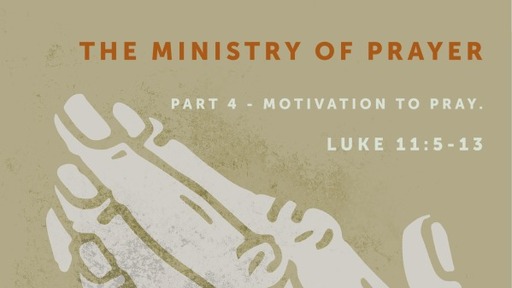The Minisitry of Pray: Part 4 - Motivation to pray.

Intro
A visitor was to be welcomed and cared for, regardless of the hour of his arrival.
having a special interest in someone
one who is on intimate terms or in close association w. another
Do not bother me; the door is now shut, and my children are with me in bed. I cannot get up and give you anything’?
1 obsolete: lacking modesty
2: marked by contemptuous or cocky boldness or disregard of others
im•por•tu•nate \im-ˈpȯr-chə-nət, -tyu̇-nət\ adjective
1528
1: troublesomely urgent: overly persistent in request or demand
lack of sensitivity to what is proper, carelessness about the good opinion of others, shamelessness, impertinence, impudence, ignoring of convention
What Jesus was saying here is, if a grouchy friend can be forced by his friend’s shameless insistence to give what he ought, how much more will our loving God respond to our shameless petitioning for what we need.